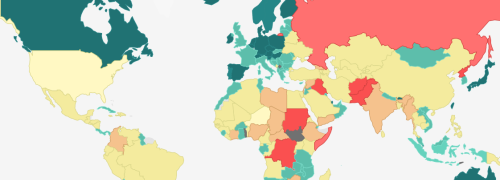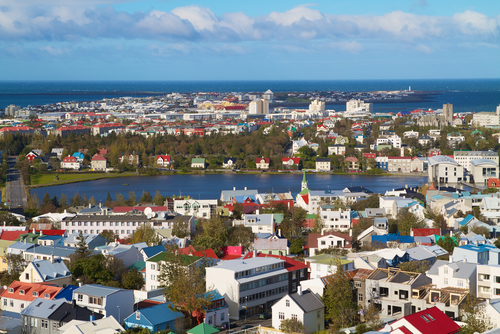- HOME
- INTRO TO THE FORUM
- USE AND MISUSE
- BADLY WRITTEN, BADLY SPOKEN
- GETTING
TO KNOW ENGLISH - PREPARING FOR ENGLISH PROFICIENCY TESTS
- GOING DEEPER INTO ENGLISH
- YOU ASKED ME THIS QUESTION
- ADVOCACIES
- EDUCATION AND TEACHING FORUM
- ADVICE AND DISSENT
- MY MEDIA ENGLISH WATCH
- STUDENTS' SOUNDING BOARD
- LANGUAGE HUMOR AT ITS FINEST
- THE LOUNGE
- NOTABLE WORKS BY OUR VERY OWN
- ESSAYS BY JOSE CARILLO
- Long Noun Forms Make Sentences Exasperatingly Difficult To Grasp
- Good Conversationalists Phrase Their Tag Questions With Finesse
- The Pronoun “None” Can Mean Either “Not One” Or “Not Any”
- A Rather Curious State Of Affairs In The Grammar Of “Do”-Questions
- Why I Consistently Use The Serial Comma
- Misuse Of “Lie” And “Lay” Punctures Many Writers’ Command Of English
- ABOUT JOSE CARILLO
- READINGS ABOUT LANGUAGE
- TIME OUT FROM ENGLISH GRAMMAR
- NEWS AND COMMENTARY
- BOOKSHOP
- ARCHIVES
Click here to recommend us!
TIME OUT FROM ENGLISH GRAMMAR
This section features wide-ranging, thought-provoking articles in English on any subject under the sun. Its objective is to present new, mind-changing ideas as well as to show to serious students of English how the various tools of the language can be felicitously harnessed to report a momentous or life-changing finding or event, to espouse or oppose an idea, or to express a deeply felt view about the world around us.
The outstanding English-language expositions to be featured here will mostly be presented through links to the websites that carry them. To put a particular work in better context, links to critiques, biographical sketches, and various other material about the author and his or her works will usually be also provided.
The most peaceful and safest countries in the whole world
If you are a foreign travel junkie or simply a lover of peace and quiet, you’d definitely want to know the most peaceful and safest countries in the world—and all the more so if there’s too much social and political discord and outright violence in your own country.

According to the Global Peace Index, which measures peace in 162 countries according to 22 indicators that gauge the absence of violence or the fear of violence, Europe retains its position in 2014 as the most peaceful region of earth, with 14 of the top 20 most peaceful countries.
The most peaceful countries are Iceland, Denmark and New Zealand. Ranking with these three among the 20 most peaceful countries are Norway, Singapore, Slovenia, Sweden, Belgium, Czech Republic, Switzerland, Japan, Ireland, Finland, New Zealand, Canada, Austria, Bhutan, Australia, Portugal, Qatar, and Mauritius
The countries of Georgia, Cote d’Ivoire, and Libya all made the biggest improvements in peace since last year. A common characteristic of these countries is the ongoing improvement in political stability in the wake of conflict.
Syria has replaced Afghanistan as the world’s least peaceful country. South Sudan recently experienced the largest fall on the Global Peace Index, dropping 16 places to rank 160th of 162 countries.

ICELAND: THE WORLD’S MOST PEACEFUL COUNTRY IN 2014
The Global Peace Index is undertaken by the Institute for Economics and Peace (IEP), a non-profit think-tank dedicated to shifting the world’s focus to peace as a positive, achievable, and tangible measure of human well-being and progress. The IEP has developed and continues to develop nation-specific peace indices that allow regional differences within countries to be measured and taken into account.
The IEP reports that since 2008, 111 countries have deteriorated in levels of peace, while only 51 have increased. The world has become less peaceful over the last year, mainly due to a rise in terrorist activity, the number of conflicts fought, and the number of refugees and displaced people. Living in countries at risk of instability and conflict are an estimated 500 million people, 200 million of whom live below the poverty line.
Read the IEP’s downloadable full report on the 2014 Global Peace Index
ANOTHER INTERESTING READING:
In “What playfulness can do for you: Research discovers the many benefits of being a goofball,” an article that came out in the July 20, 2014 issue of the Boston Globe, staff writer Leon Neyfakh
writes that while it’s easy to conclude that responsible adults occasionally pursue delight in all its forms simply for the fun of it, scientists who specialize in the psychology of play have found that people who are highly playful appear to be better at coping with stress, are more likely to report leading active lifestyles, and are more likely to succeed academically. What’s more, their playfulness makes them more attractive to the opposite sex.
Read Leon Neyfakh’s “What playfulness can do for you” in BostonGlobe.com now!





